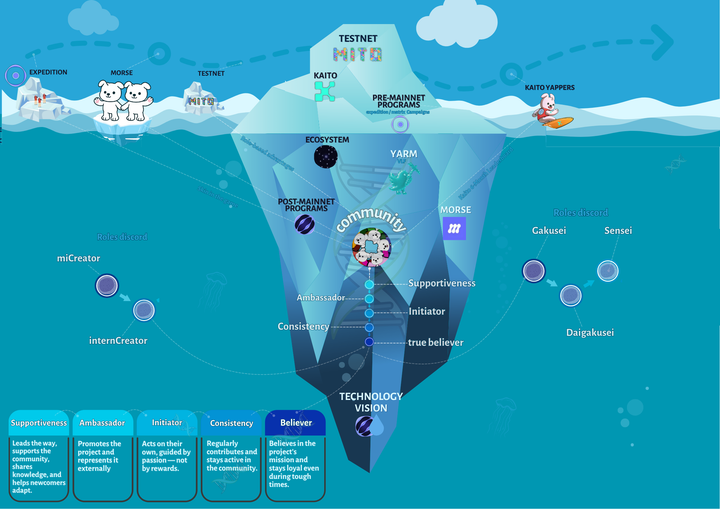Fleek: The Developer-Friendly Gateway to Decentralized AI and Web Hosting

Building decentralized applications shouldn’t feel like navigating a maze. Fleek simplifies this journey, offering developers a seamless way to deploy AI agents and web apps without wrestling with Web3 complexity. Running atop the Fleek Network—a decentralized edge infrastructure—Fleek blends high performance with Web3 values like censorship resistance and user sovereignty. Whether you're crafting a privacy-preserving AI agent or a dynamic JAMstack site, Fleek empowers you to deploy securely and efficiently.
This article explores Fleek’s AI and web hosting features, developer tools, pricing, community support, and its potential to power DeFi innovations through synergies with platforms like Mitosis.
AI Agent Hosting: Secure and Sovereign
Fleek streamlines AI agent deployment with the Eliza framework, offering one-click deployment, customizable workflows via plugins and APIs, and version flexibility. Trusted Execution Environments (TEEs) ensure verifiability and confidentiality, making Fleek ideal for sensitive use cases like healthcare or finance. TEEs align with Web3’s ethos by guaranteeing that even the host cannot access plaintext data, fostering user trust. Beyond Eliza, Fleek supports frameworks like DeepSeek and provides a template marketplace, ensuring flexibility for diverse AI projects. This makes Fleek a robust choice for AI builders seeking secure, decentralized solutions.
Web Hosting: IPFS-Powered Efficiency
Fleek supports frameworks like Next.js (with SSR), React, Vue, Astro, Gatsby, and Nuxt, catering to varied web development needs. Deployments leverage the InterPlanetary File System (IPFS), assigning each version a unique hash for immutability and tamper resistance. Developers enjoy Web2-like features—automatic HTTPS, custom domain mapping, and Git-integrated workflows—while benefiting from Web3’s censorship resistance and persistence. This seamless integration lets developers embrace decentralized infrastructure without the typical learning curve, making Fleek an accessible entry point to Web3 development.
Developer Tools and Pricing: Built for Builders
Fleek’s tools simplify decentralized workflows. The Fleek CLI enables command-line app deployment and storage management, while the TypeScript SDK supports integration into frontend and backend apps. The AI Agents API offers programmatic control for custom needs. Pricing is developer-friendly: the AI "Fan Plan" starts at $10/month, scaling to the "Manager Plan" at $99/month for unlimited agents, with Enterprise options for larger use cases. However, web hosting pricing lacks transparency.
Community and Open-Source Contributions
Fleek fosters collaboration through active Discord and X (formerly Twitter) channels, where the team engages developers, gathers feedback, and provides support. Open-source repositories for the CLI, SDK, and Eliza fork encourage community-driven development, allowing developers to contribute code, propose features, or test templates.
Expanding Horizons: Fleek and DeFi Synergies with Mitosis
Fleek’s capabilities extend beyond AI and web hosting, offering potential synergies with DeFi platforms like Mitosis, a blockchain focused on cross-chain liquidity and yield optimization. Fleek’s AI hosting, powered by TEEs, can integrate with Mitosis to enable privacy-preserving, AI-driven DeFi strategies. Mitosis’s cross-chain liquidity pools generate vast datasets (e.g., transaction volumes, yield rates), which Fleek-hosted AI agents could analyze securely within TEEs to optimize yield farming or detect fraud. For example, an AI agent on Fleek could predict optimal cross-chain yield opportunities on Mitosis, executing smart contracts to dynamically allocate assets while keeping user data encrypted.
Additionally, Fleek’s decentralized storage—using IPFS, Filecoin, and Arweave—can support Mitosis’s cross-chain operations by providing a secure, immutable data layer. Mitosis’s miAssets and transaction records could be stored on IPFS via Fleek, ensuring data persistence and censorship resistance across chains. For instance, Mitosis could archive transaction logs on Fleek’s storage, leveraging IPFS for content addressing and Filecoin for long-term transparency, enhancing trust for liquidity providers. This synergy positions Fleek as a key infrastructure partner for DeFi innovators, expanding its role in the Web3 ecosystem.
Conclusion: Start Building with Fleek
Fleek bridges Web2 ease and Web3 principles, empowering developers to build decentralized AI agents and web apps with minimal friction. Powered by the Fleek Network, enhanced with TEEs and IPFS, and now poised to potentially support DeFi platforms like Mitosis, Fleek offers performance, privacy, and versatility. Whether you’re building a privacy-first AI app, a global-ready website, or exploring AI-driven DeFi solutions, Fleek provides the infrastructure to innovate—decentralized, secure, and developer-friendly.
Articles for you to explore
zk‑SNARKs to zk‑STARKs: The Evolution of Zero‑Knowledge in Web3
Succinct SP1 zkVM: Democratizing Zero-Knowledge Proofs for Rust Developers
🧬 How Replacing the EVM with RISC-V Could Accelerate Mitosis’ Programmable Liquidity Vision
The Future of Web3 Security: Verifiability Without Visibility Using zkTLS and FHE
Unpacking Blockchain's Engines: A Comprehensive Look at Virtual Machines
About Mitosis:
Mitosis APP
Blog
Docs
X
Discord



Comments ()